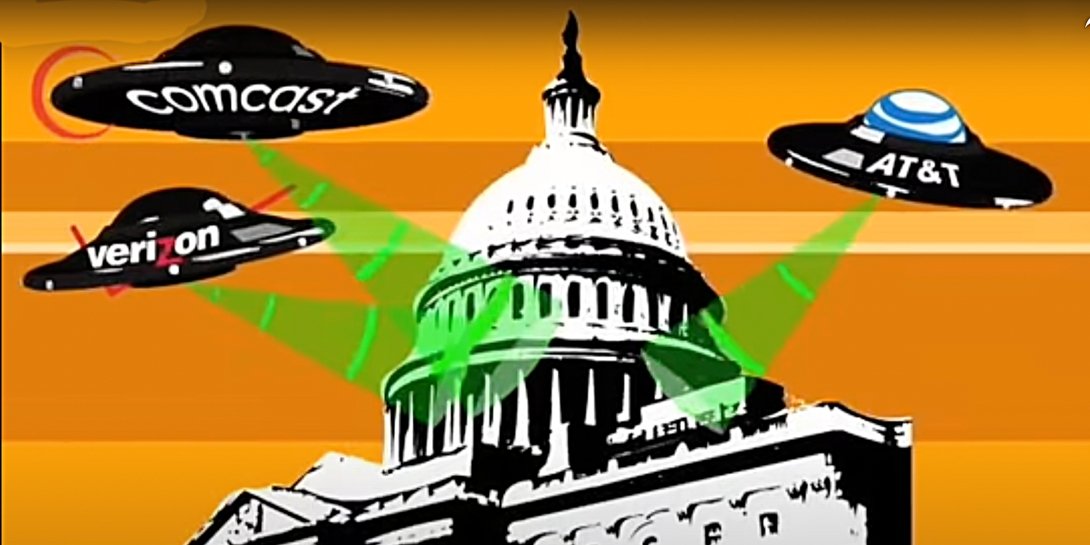New Free Press Analysis (Again) Skewers Bogus Broadband Lobby Claims That Title II Harms Investment in Networks

Free Press
WASHINGTON — On Monday, Free Press provided the Federal Communications Commission with analysis that once again skewers the phone and cable lobby’s claims that investment in broadband is harmed by the rules required to guarantee proper oversight of the sector. The analysis comes as the agency prepares to vote on whether to reclassify high-speed internet-access services under Title II of the Communications Act. Title II authority allows the FCC to safeguard Net Neutrality and hold companies like AT&T, Comcast and Verizon accountable to internet users across the United States.
Free Press Senior Advisor of Economic and Policy Analysis S. Derek Turner reviewed recent discussions by ISP executives of the factors that impact their industry’s investment in and deployment of broadband networks. The review covers their comments to investors and investment analysts, as well as financial data from the last decade and recent numbers released after the FCC proceeding’s comment period at the FCC.
Title II and Net Neutrality were not mentioned, or even hinted at, by a single ISP on any full-year 2023 investor calls or at other investor conference appearances following these calls, and no analyst asked any question about or related to the FCC proceeding.
“The record reflects that ISPs are strongly committed to deploying and upgrading their networks ahead of consumer demand, because they are confident that doing so is key to future financial prosperity in the face of increasing competition,” reads the analysis, which was submitted as an ex parte filing to the FCC. “Other factors that could impact ISP investment decisions — such as the state of the broader economy, supply costs, interest rates, corporate taxes, or supposed regulatory uncertainty — are either not material or simply warrant no mention by ISPs in their communications with investors and the investment community.”
The filing reiterated that the FCC’s return in 2015 to a light-touch Title II approach and basic open internet rules did not harm broadband deployment — and will not harm it once restored. “ISPs of all types and sizes are continuing to invest because doing so is how these companies can best generate shareholder returns,” reads the analysis.
Turner said:
“The broadband industry and its hired lobbyists and spokespeople routinely make frothy claims alleging catastrophic harm to investment in network deployment if the FCC restores its authority to protect internet users from harm. But the evidence provided for these extraordinary claims of doom are little more than anti-regulatory rhetoric, sometimes coupled with misleading and inaccurate tallies of publicly-traded communications firms’ aggregate capital expenditures. The industry’s home-cooked, slanted studies rely on questionable applications of quasi-experimental statistical tools — without one look at the mountains of contradictory real-world data showing ISPs’ remarkably consistent investment patterns and first-hand explanations for their often cyclical spending.
“We took the time to look at all the evidence and found that FCC regulation is simply a non-factor in the minds of ISP executives and investment analysts. And that’s because Title II and Network Neutrality are essential to preserving and promoting the internet’s virtuous cycle of investment. ISPs are deploying 5G, fiber, and advanced cable internet DOCSIS networks at historic levels. This is happening as the agency prepares to rightly restore Title II authority and its open internet rules, yet Title II was not a topic of discussion on ISPs’ end-of-year investor calls.
“The reality is that capital expenditure on broadband networks ebbs and flows depending on a number of factors, like consumer demand and technological evolution; but light-touch regulatory oversight doesn’t appear to be one of them. And it’s nonsensical to expect capital investments to continually rise, or to believe that if they do not constantly rise there must be something amiss.
“Indeed, this position that network investment must always go up, lest the FCC is to blame, is an argument against efficiency and productivity. Capital expenditures are not a good proxy for deployment. Companies want to spend less money and get a better return on investment. And as technology improves and becomes more efficient, and as carriers themselves become more efficient, the average per-location cost of deployment can decline. Carriers can spend less while actually accelerating the pace of their buildout and upgrades.
“The record is clear. ISPs are, and will continue to upgrade their networks because that is the best way for these companies to return value to their shareholders.”